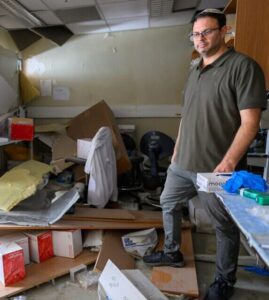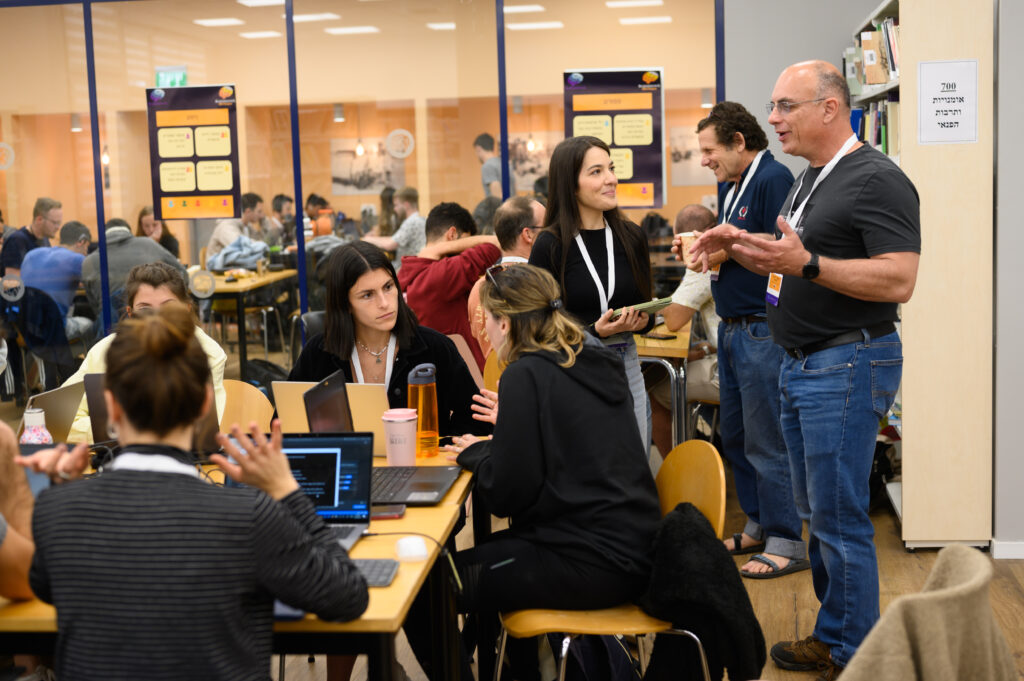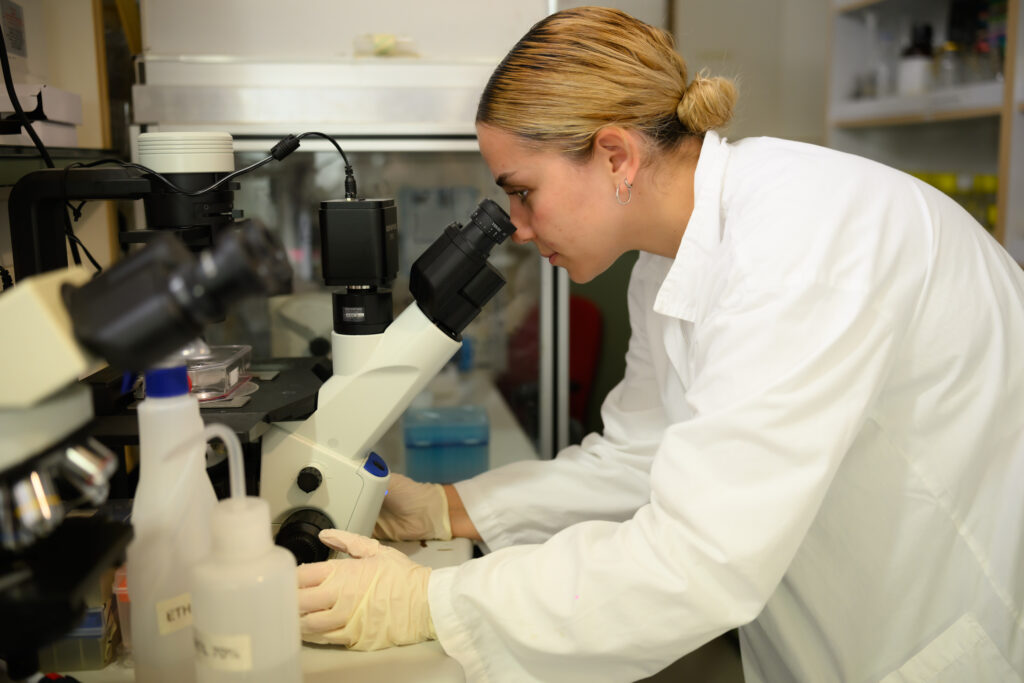
BGU Labs Left with Years of Lasting Damage from Missile Strike
BGU Labs Left with Years of Lasting Damage from Missile Strike
July 7, 2025
Current events, Medical Research
The Time of Israel—In the early morning of June 19, an Iranian ballistic missile with a large explosive warhead struck Building 12 of the Soroka University Medical Center, injuring at least 80 people, destroying the hospital’s surgical ward, causing widespread destruction to nearby buildings, and destroying six Ben-Gurion University of the Negev (BGU) research laboratories and the medical school’s anatomy lab.
Not only were dozens of researchers’ lives’ work destroyed, but the cadavers that had been donated to the medical school for future physicians’ training were irreparably harmed and had to be buried.
Other damage was dealt to the lab of Prof. Ehud Ohana of BGU’s Department of Clinical Biochemistry and Pharmacology.
“It’s going to take a very long time to generate them again,” Ohana said sadly. “Some are gone and irretrievable. We’ve been set back from two to five years.”
Ohana’s lab focuses on researching diseases such as diabetes, renal cancer, and cholesteatoma, a nonoperative tumor in the middle ear.
“It’s a total loss,” he said. “We were able to go back on track with some of the experiments, but the majority of it will be delayed. We have the knowledge. We’re focused on the colossal project to bring everything back on track.”
His students, he said, “have worked so hard to go back to doing science. But we’ve already started since the attack occurred because this is our life’s mission. This is my life’s mission.”
Prof. Chamovitz noted regarding the loss of the Soroka labs, “This is really a disaster of enormous proportions. How do you even put a price tag on it? There could be a scientific discovery that would have come in four months that’s not going to come.”
In addition to the six labs that were completely destroyed, nine others were damaged. About seven classrooms at the medical school suffered extensive ruin.
In all, 30 buildings were damaged in the attack, including the library, which remains closed. Exams have been postponed, and while students mingled in the center of the lush campus, the atmosphere was subdued.
The challenge, Prof. Chamovitz said, will be to figure out how — and where — to teach next year even as the number of incoming medical students has grown from 120 to 200 students a year.
Prof. Chamovitz estimates that the total losses to BGU at between $50 and $200 million.
“By targeting universities, the Iranians hoped to set us back,” Prof. Chamovitz said. “But we’re focused on recovery. We’re focused on how we’re going to rebuild.”
For more resources and ways to support, visit: a4bgu.org/recoveryresilience




